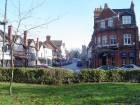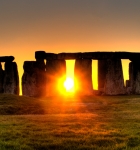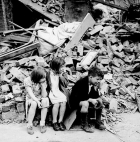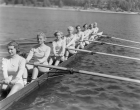Local Study
The importance of local history for developing a sense of place and identity is emphasised by the National Curriculum. The local landscape and buildings can often reveal a great deal about the use of land and the type of people who lived there in the past. Buildings and landscape can reveal how long a heritage the place has had. Monuments and local heritage or parish records can highlight individual local heroes or provide a window into the lives of ordinary local people in times gone by. How similar or different were their lives? Often, the local picture can also help to reveal the national or international picture.
Sort by:
Date (Newest first) | Title A-Z
Show:
All |
Articles |
Podcasts |
Multipage Articles
-

Scheme of work: Local history – the story of our High Street
ArticleClick to view -

Local significant individuals
Multipage ArticleClick to view -

'Be bloody, bold and resolute': Two possible interpretations of 'local history'
ArticleClick to view -

'Doing Local History' through maps and drama
ArticleClick to view -

A Local History Toolkit
ArticleClick to view -

A Local Study
ArticleClick to view -

A Significant Local Event: Carlisle floods
ArticleClick to view -

A local history toolkit
ArticleClick to view -

A treasure trove of local history - how to use your local record office
ArticleClick to view -

A view from the classroom: Teachers TV, The Staffordshire Hoard And 'Doing History'
ArticleClick to view -

All the fun of the fair! Key Stage 1 – Beyond living memory
ArticleClick to view -

Artefacts in the neighbourhood
ArticleClick to view -

Belmont’s evacuee children: a local history project
ArticleClick to view -

Case Study 5: Local History - A pupil-led study with 9-10 year olds
ArticleClick to view -

Case study: Creative approaches to learning about the Bristol blitz
ArticleClick to view -

Celebrate your sporting heritage
ArticleClick to view -

Census 2021: using the census in the history classroom
ArticleClick to view -

Chronology and local history: Year 6
ArticleClick to view -

Churches as a local historical source
ArticleClick to view -

Creating a school museum
ArticleClick to view


